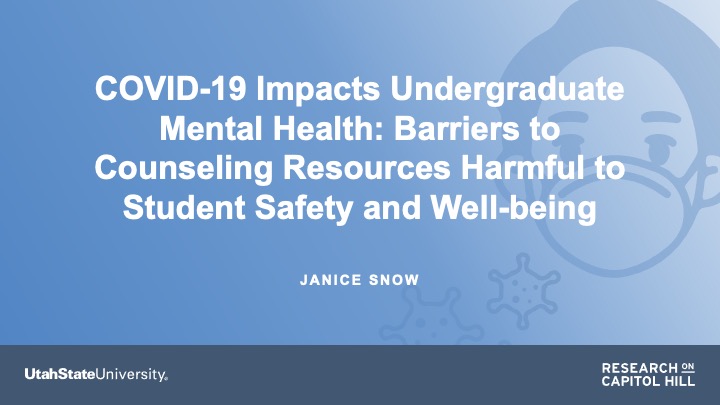Title: COVID-19 Impacts Undergraduates: Mental Health Distress and High-Risk Health Decrease Grades
Name: Janice Snow
Mentor: Crissa Levin
In the spring 2020 semester, colleges and universities throughout the nation made sudden, unpreceded shifts to online instruction due to SARS-CoV-2. With the shutdown of campuses, students moved back home with some living out of state of their institution. Current licensing and policy regulations prevent most counselors from providing mental health counseling to out of state students even though they pay for it in their tuition fees. Additional stressors during the pandemic included health concerns for self and family members, childcare responsibilities increasing for individuals with families, financial instability, and finding accommodations for persons with disabilities. We conducted two separate but related surveys of undergraduate students during the end of the spring 2020 semester; a brief national survey and a more detailed survey with USU students. Students nationally (n=197) were asked about mental health and academic outcomes between early and late in the spring semester. These students reported higher depression, anxiety, and academic distress scores, which predicted decreased grades during the spring semester. USU students (n=80) were asked about mental health and academic outcomes as well as teacher gender, and perceived teacher support. A cluster analysis was performed and indicated that students taking courses with male instructors felt less supported and reported larger grade drops during the pandemic than students with female instructors. As the pandemic progressed, the state of Utah made it easier for telehealth counseling to be available. Utah is part of Psypact, which allows psychologists to practice via telehealth in other participating states and temporarily in nonparticipating states. Many college students live out of state and therapists (mental health counselors, social workers, marriage and family therapists) need to have the ability to also work with these students in order to ease the mental health crisis among college students.



